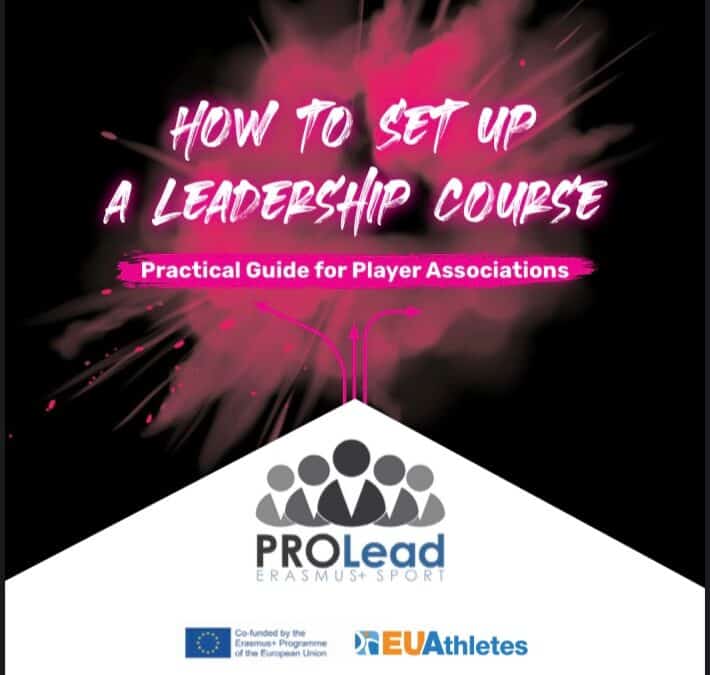
Dec 22, 2022
PROLead is a collaborative partnership project co-funded by the Erasmus+ Programme of the European Union and coordinated by EU Athletes, with German Sport University Cologne and 8 player
associations from different countries and sports (GPA, RPI, PPF, FNASS, UBE, TCA, AJFS, AJJV) as partners. Focusing on the topic of dual careers of athletes, the aim of the project was to enhance leadership skills of athletes, as well as volunteers and staff of player associations, by designing and implementing leadership courses at the European and national level.
After the Dissemination Conference which was an opportunity to share good practices and results of the three years of cooperation, the project is now coming to the conclusion at the end of the year. Experiences gathered during different stages of the project are presented in the final intellectual output How to Set Up a Leadership Course? Practical Guide for Player Associations. Building on the research phase, the design and implementation of both European and National Leadership Courses, as well as the evaluation and participant’s feedback, the Guide offers player associations or other stakeholders guidance and advice related to leadership education.
How to Set Up a Leadership Course? Practical Guide for Player Associations
For more information contact Paulina Tomczyk, PROLead Project Manager paulinatomczyk@euathletes.org
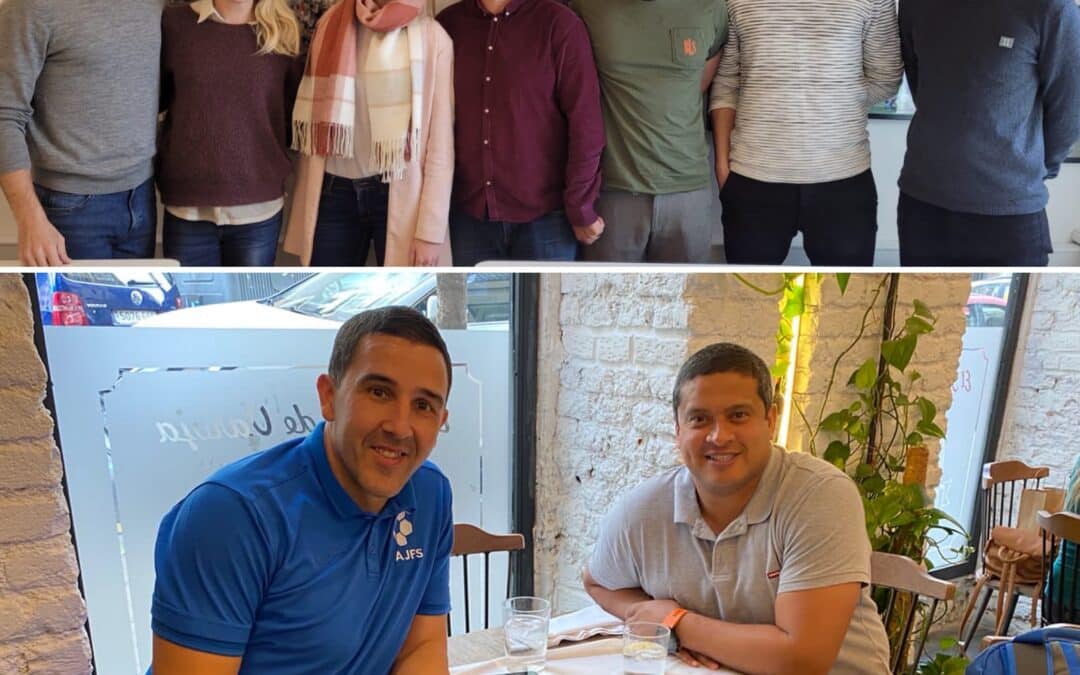
Dec 19, 2022
ProMobility project, financed by the European Union and focusing on exchanges and mobility between staff of player associations from Europe and South Africa, was implemented by EU Athletes between January 2021 and December 2022. The aim of the project was to support learning between player associations
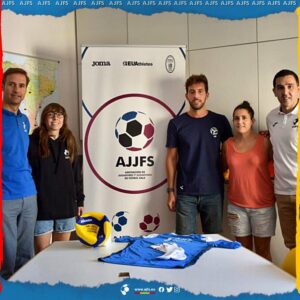

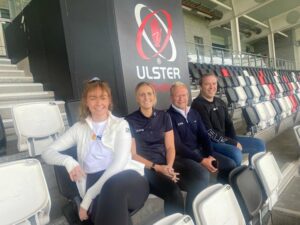
The project was heavily impacted by the Covid-19 pandemic, leading to changes in the work programme, introducing Online Exchanges and limiting the number of job shadowing visits that were implemented. Nevertheless, the project helped to identify, share and expand good practice in supporting elite athletes through their associations. The player associations participating in the project represent more than 10,000 elite athletes. Therefore, the project positively influences these players as it helps to enhance the quality of work and support that the player associations can offer them.
The main topics of the project were:
- Player recruitment and engagement (as members of player associations)
- Player personal development
- Commercial development and marketing
- Communications and media
- Response to the Covid-19 pandemic
These topics have been explored through online and in-person exchanges between the staff of player associations and correspond to the chapters of the Good Practice Booklet. The purpose of the booklet was to gather and share good practices identified. Any athlete association or player union, as well as any other organization whose aim is to support athletes, can benefit from ideas and practical advice that has been gathered during the ProMobility project.
Consult ProMobility Good Practice Booklet
For more information contact Paulina Tomczyk, ProMobility Project Manager paulinatomczyk@euathletes.org
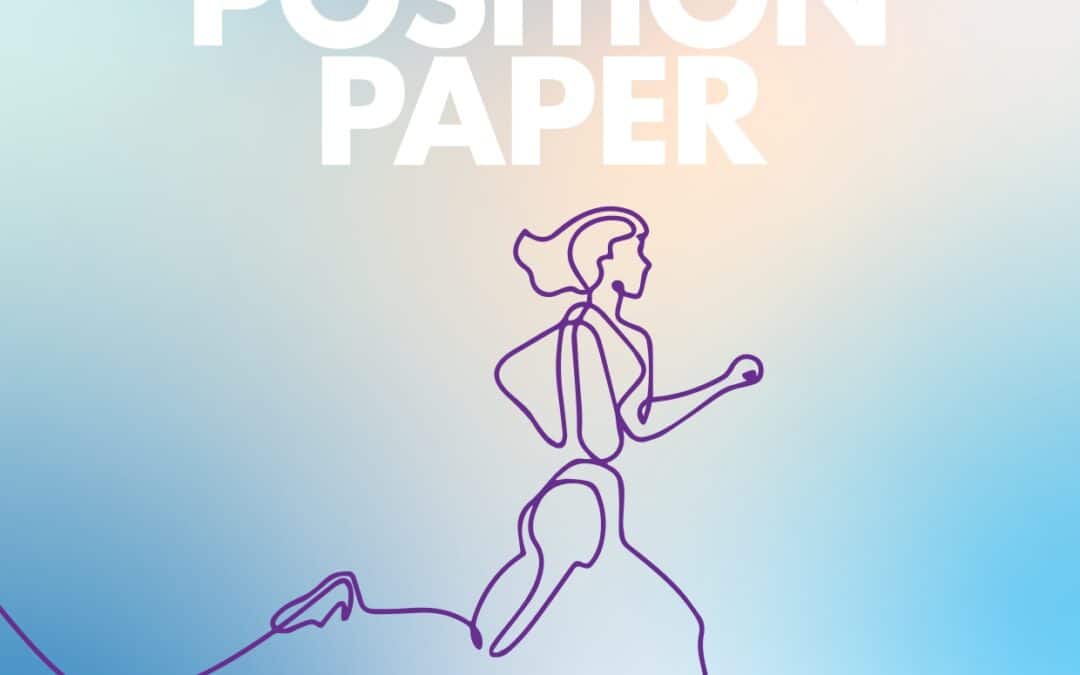
Dec 19, 2022
After several months of consultations and cooperation, EU Athletes is proud to publish the newest Common Position Paper of the Member of European Elite Athletes Association. Following on previous documents published in 2016 and 2018, the Paper presents the agreed positions of player unions and associations representing over 25,000 athletes in various sports and countries across Europe on 12 topics that have been identified as fundamental for professional and elite athletes:
1. Athlete rights are human rights
2. Athletes as workers
3. Good governance in sport
4. Economic dimension of sport
5. Match-fixing
6. Anti-doping
7. Dual career, personal development and wellbeing
8. Access to justice
9. Women’s sport
10. Recovery and sustainability of the sport sector
11. ‘European Sport Model’ according to organised athletes
12. Solidarity, partnerships and cooperation
With the 2022 Common Position Paper, EU Athletes reiterates that every athlete has a right to a sporting environment that is well governed and respect their rights as people, citizens and workers.
We also believe that sport can and should have a positive impact on the wider society, contributing to the promotion of fundamental values and fostering development.
Paulina Tomczyk, the General Secretary, said ‘Our Common Position Paper is an important tool that strengthen the voice of organised European athletes. Thanks to this document, we are able to advocate and defend the positions agreed by legitimate representatives of several thousands of athletes at the European and international level. We are committed to working together with governments, international organisations and sport organisations to achieve the goals set up in the document.’
2022 Common Position Paper
For further information contact Paulina Tomczyk, General Secretary paulinatomczyk@euathletes.org

Dec 16, 2022
EU Athletes takes note of the Opinion of Advocate General Rantos delivered in the case Case C-124/21 P International Skating Union vs European Commission.
This case, which EU Athletes has supported from the beginning, is of great importance for every athlete and player. At its heart are the rights of athletes to compete and to take advantage of their commercial opportunities, but also athletes’ access to justice and the right to be protected by EU laws as citizens and workers.
When analysing the case at stake, the reality of the sport industry must be duly considered. The sport sector is marked with a huge power imbalance between the athletes and the sport governing bodies such as the ISU. What is more, those organisations operate within an inherent risk of conflict of interest due to their dual function. It is crucial to set limits to the powers of monopolistic sport organisations in order to make sure that their actions are not detrimental to the market, the athletes, the fans and the sport itself.
In sports such as ice skating, the World Championships and the Olympic Games are the pinnacle of any athletes’ career. It is hard to imagine the athletes would risk a chance to participate and win medals at these events to compete in third party event. The sport organisations should not in any case be allowed to threaten athletes with severe sanctions with a clear goal to effectively prevent third parties from organising events.
Furthermore, it is important to note that the international sport arbitration in its current form, embodied by the forced CAS arbitration, including its impartiality and independence, is widely contested by athletes and their representatives worldwide.
While awaiting the decision of the Court, our thoughts go back to the very beginning of the case. It started with two brave speed skaters, Mark Tuitert and Niels Kerstholt, who decided to fight the injustice they faced while practicing their sport – not for themselves, but for the future generations of athletes. We trust that the rights of athletes will prevail and that the opportunity that the decision in this case has to improve the sport sector will not be lost.
Statement
Contact Paulina Tomczyk, General Secretary paulinatomczyk@euathletes.org
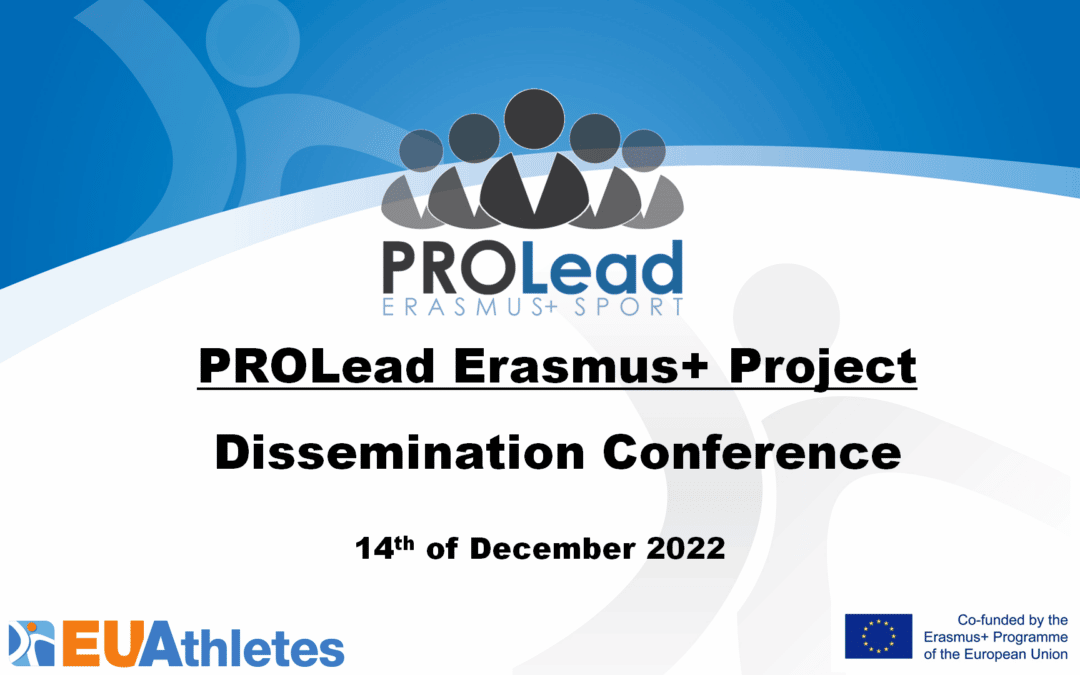
Dec 14, 2022
This morning, the Dissemination Conference of PROLead project has taken place online, gathering over 170 participants from player associations, sport organisations, dual career providers, universities and other organisations. The meeting was an opportunity to share the experiences and results of the project, good practices and discuss the topic of leadership education and player development.
PROLead is a collaborative partnership project co-funded by the Erasmus+ Programme of the European Union and coordinated by European Elite Athletes Association (EU Athletes) with German Sport University Cologne and 8 player associations from different countries and sports (GPA, RPI, PPF, FNASS, UBE, TCA, AJFS, AJJV) as partners. Focusing on the topic of dual careers of athletes, the aim of the project was to enhance leadership skills of athletes, as well as volunteers and staff of player associations, by designing and implementing leadership courses at the European and national level.
The conference was kicked off by Tom Parsons, the CEO of Gaelic Players Association who shared his leadership journey in a keynote speech. Presentations of the PROLead project by Paulina Tomczyk, General Secretary of EU Athletes, and the project results: Desktop Research and Literature Review of Leadership Education for Athletes by Sebastian Uhrich from German Sport University Cologne and the European Leadership Course and Good Practice Guide by Eamonn Murphy from Gaelic Players Association followed.
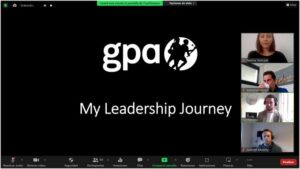
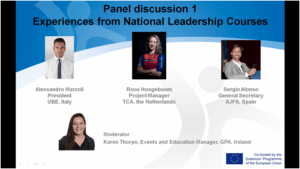
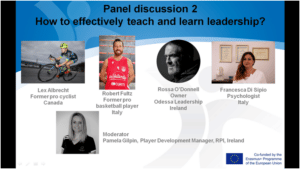
The participants also had an opportunity to hear from two panels. First one, moderated by Karen Thorpe from Gaelic Players Association, focused on the experiences of player associations who designed and delivered National Leadership Courses for their players during the PROLead project. Alessandro Marzoli from Union des Basketteurs Europeens, Roose Hoogeboom from the Cyclists Alliance and Sergio Alonso from Asociacion de Jugadores de Futbol Sala shared insights into their work. In the second panel, two athletes (Lex Albrech and Robert Fultz) and two facilitators (Rossa O’Donnell and Francesca Di Sipio) engaged in a discussion about how to best teach and how to learn leadership, moderated by Pamela Gilpin from Rugby Players Ireland.
The Conference was concluded by Natalia Orive, the Vice President of EU Athletes, who emphasised the work that EU Athletes has been doing to strengthen the leadership within the player association movement, and the importance of helping athletes to realise their potential and strength as leaders.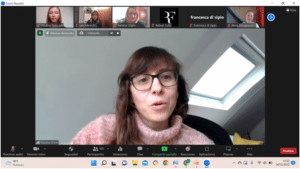
Paulina Tomczyk, the Project Manager of PROLead, said ‘I am very proud of the work that the project team has completed over the last 3 years. We have managed to bring positive results for the athletes, partner organisations and other EU Athletes members. Today’s conference was also an opportunity to share and exchange with other player associations and various stakeholders, with an ultimate goal to best support athlete development and leadership education.’













